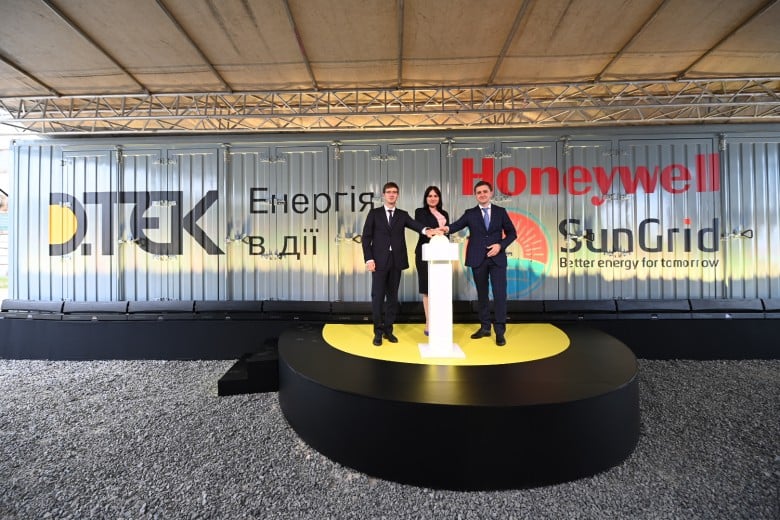
Grid operators from across Europe believe energy storage is a vital flexibility resource that should be incentivised.
ENTSO-E, the association of European transmission system operators (TSOs) weighed in with its views on the European Commission’s reform of electricity markets last week. ENTSO-E represents 39 member organisations from 35 countries.
Enjoy 12 months of exclusive analysis
- Regular insight and analysis of the industry’s biggest developments
- In-depth interviews with the industry’s leading figures
- Annual digital subscription to the PV Tech Power journal
- Discounts on Solar Media’s portfolio of events, in-person and virtual
The European Commission opened a public consultation period on its Electricity Market Design reforms for the European Union (EU) on 23 January, as reported by Energy-Storage.news at the time. The consultation period closed on 13 February.
The transmission operator group published its submission to the consultation a day later. It said that while the EU should pursue energy security as a primary aim of the reforms, it should also “accelerate the transition to a resilient and affordable carbon-neutral power system”.
ENTSO-E last October released its ‘vision’, called ‘A Power System for a Carbon Neutral Europe,’ that set out how that could be achieved through carbon neutral energy sources, combined with resources for system flexibility, and an interconnected power grid underpinning an integrated energy market across the continent.
Energy storage will likely play a role in each of those areas, but it is in the flexibility resources part that the grid operators put most emphasis on the technology in its response to the new consultation.
As the share of variable renewable generation from sources like solar PV and wind grows, so too does the need for balancing the system to more closely match supply with demand. With this being done largely via gas today, the EU itself recognises that energy storage, as well as demand response, can add much of that flexibility instead.
How that flexibility should be added, however, is the big question. Market constructs in Europe and in most other parts of the world are still based on the old paradigm of centralised thermal power generation and regulation and policy has not yet caught up with technology.
While ENSTO-E’s position on the consultation is broad and offers input on various different areas of the reforms, here are some of the takeaways pertaining directly to energy storage:
Hybrid auctions
One means of incentivising investment into energy storage through market design would be to hold auctions for hybrid assets i.e., variable renewable generation paired with energy storage, which would give solar and wind more stable electricity supply profiles, ENTSO-E said.
Market frameworks
Over the longer-term, the value of flexibility resources could be better recognised with stronger locational and temporal pricing signals. These would provide stronger incentives for dispatching and siting of flexible resources, and would align energy system planning in each territory of Europe closer to what it needs.
Other suggestions included removal of technical and regulatory barriers for storage and other flexibility resources to participate in energy and power markets, including energy, congestion management, ancillary services and capacity markets. That would include allowing aggregated customer-sited behind-the-meter (BTM) resources to participate more widely.
There could also be fixed price contracts for flexible generation or flexibility services that top up the difference from what an asset can earn in the spot wholesale market, akin to a contract for difference (CFD).
Elsewhere, ENTSO-E also said that grid operators’ investments in upgrading and modernising their grids are not properly incentivised, leaving a gap between what they need to do and what they’re allowed to do, or allowed to do and get paid for.
There is “widespread and structural under-remuneration” of investments by TSOs into balancing and congestion management costs. The actual investment requirements will be “vast,” and the association argued that TSOs in many cases are not able to recover their costs for what are often large cross-border projects that benefit consumers in Europe beyond their own service areas.
Industry view on reforms
In a recent article for our quarterly journal PV Tech Power (Vol.33), growth and market development director Julian Jansen and Lars Stephan, policy, and market development director at energy storage company Fluence offered their take on the Electricity Market Design reforms.
Many of the pair’s arguments and recommendations echo those carried by ENTSO-E. For instance, the article also highlighted that procurement of hybrid resources, perhaps through tenders, could be an option, as could a CFD-like structure for giving developers and investors long-term certainty on their returns or revenues.
Jansen and Stephan wrote also that Europe’s Capacity Mechanism design should have a mandatory low-carbon component, with payments higher for less polluting resources and becoming progressively more so, and valuing lower carbon intensity with each running of procurements.
There has already been some activity in this area through European grid operators, most notably with Italian TSO Terna running low-carbon Capacity Market auctions on a pilot basis.
Energy-Storage.news’ publisher Solar Media will host the 8th annual Energy Storage Summit EU in London, 22-23 February 2023. This year it is moving to a larger venue, bringing together Europe’s leading investors, policymakers, developers, utilities, energy buyers and service providers all in one place. Visit the official site for more info.






